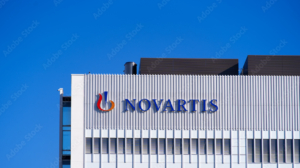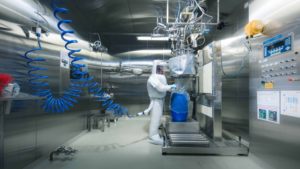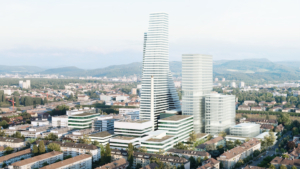
Nuclidium fuels next radiopharma wave
Basel-based NUCLIDIUM AG has successfully closed a Series B financing round of CHF 79 million (EUR 84 million) to advance the development of its copper-based radiopharmaceutical platform. The round was led by Kurma Growth Opportunities Fund, Angelini Ventures, Wellington Partners, and Neva SGR, a company of the Intesa Sanpaolo Group.
Here comes another major financing deal for a company still in its early stages – and it´s radiopharma again as with Arctithera. Once again, it’s a cross-border investor consortium with strong ties to Switzerland and Germany, alongside significant French participation like with EvlaBio in heart disease. This time, the spotlight is on Nuclidium AG, headquartered in both Basel and Munich, which has secured a Series B financing round totalling CHF 79 million (EUR 84 million). Following recent financings, this could be another sign that investor funds are beginning to flow more freely again. The round was led by Kurma Growth Opportunities Fund, Angelini Ventures, Wellington Partners, and Neva SGR (part of the Intesa Sanpaolo Group), with additional participation from DeepTech & Climate Fonds (DTCF), Bayern Kapital, Eurazeo, Vives Partners, NRW.BANK, HighLight Capital, and existing investors.
With backing from institutional investors in the German states of Bavaria and North Rhine-Westphalia, the company is also expanding its Munich base. The funds will support further development of Nuclidium’s theranostic pipeline based on copper-61 and copper-67 isotopes (61Cu/67Cu). The latter, a beta emitter, will be used across multiple oncology indications, including metastatic breast cancer and prostate cancer. The company also plans to scale up its global production and manufacturing infrastructure.
Nuclidium’s differentiated platform links tumour-specific targeting molecules with copper isotopes – copper-61 for diagnostics and copper-67 for therapy. Initial clinical results in diagnostic applications have shown superior lesion detection and a higher tumour-to-background ratio compared to approved tracers.
“Nuclidium is advancing its lead compounds into the next clinical phases to diagnose and treat metastatic prostate cancer, neuroendocrine tumours, and breast cancer,” said Dr Leila Jaafar, CEO and co-founder of the company. “Our copper-based radiotheranostics are designed for seamless integration into hospital workflows, patient care, and waste management – which is essential to improving global access to radiotheranostics. Our novel copper platform also enables us to rapidly develop new targets across a wide range of cancer types.”
Dr Jaafar comes from a background in the Swiss energy sector and previously led a project at Apiq to develop a production process for Lutetium-177, as she explained in an interview with European Biotech News. Apiq, along with the Kantonsspital Baden and its innovation hub, provided early support for the company’s foundation. However, Jaafar notes that most of the support came from clinical partners and suppliers in the isotope field.
“We didn’t want to become visible until we had something to show,” she explained regarding the company’s previous low profile. With strong imaging data now in hand, she feels there is sufficient evidence to generate investor interest. The easier handling of copper isotopes compared to other radiopharmaceuticals was also a significant advantage. “Because we started development from the physician’s perspective, our first priority was a simple procedure that could be carried out using existing infrastructure. The formulation takes five minutes at room temperature under standard shielding conditions. Crucially, the half-life of copper is a perfect match for tumour retention time – all within 24 to 48 hours. And importantly, waste is not an issue. Copper-67 decays into a stable isotope that can be conventionally disposed of,” Jaafar noted.
The pitch proved convincing. Dr Daniel Parera of Kurma Partners highlighted Nuclidium’s unique position. Only Clarity, globally, is also pursuing development of copper isotopes. “Nuclidium’s platform is uniquely positioned in a fast-evolving landscape and will redefine how radiotheranostics are deployed in the future. This investment reflects our strong belief in the future of precision medicine and our conviction that Nuclidium has the potential to become a next-generation company,” he said.
For Parera, the simplified logistics and supply chain associated with copper were key. He pointed out that some radiopharma players are already struggling due to unreliable supply chains – a challenge that is often outside the control of the companies themselves.
The Nuclidium deal brings fresh attention to the radiopharma sector, especially after the recent $75 million funding round secured by Norwegian–US company Actithera, which is developing a novel covalent radioligand targeting technology. However, funding is no longer flowing into just any idea – investors are now looking for approaches that demonstrate strong tumour specificity, production scalability, or ideally, both.


 adobe stock photos - Michael Derrer Fuchs
adobe stock photos - Michael Derrer Fuchs  Lonza Group
Lonza Group Roche
Roche